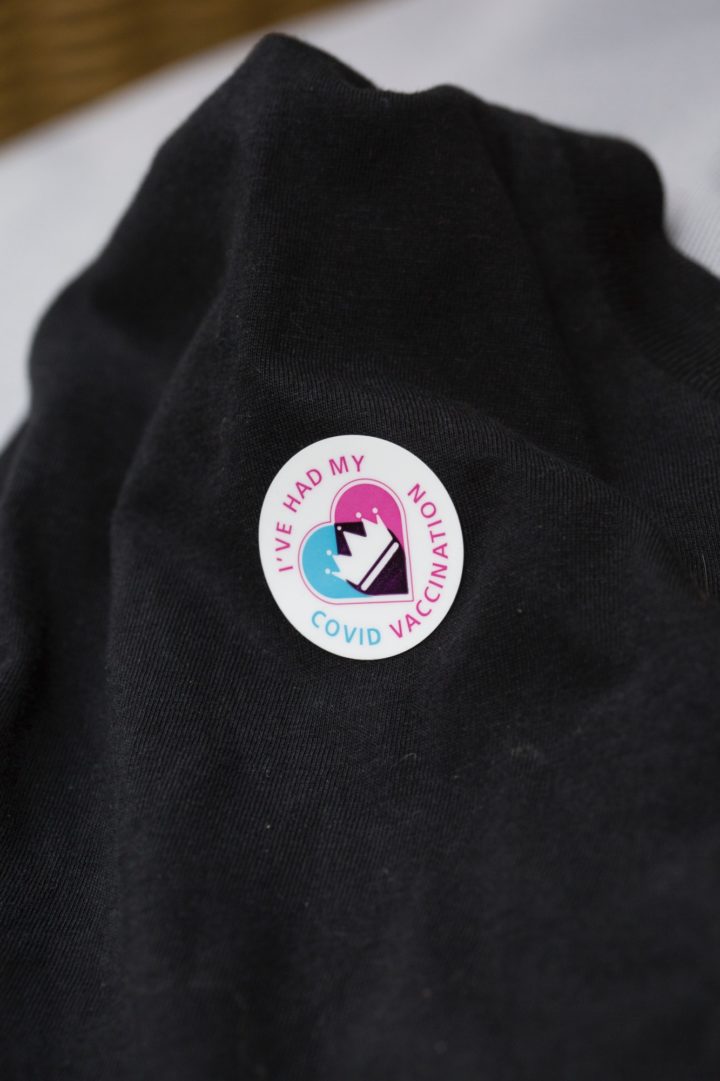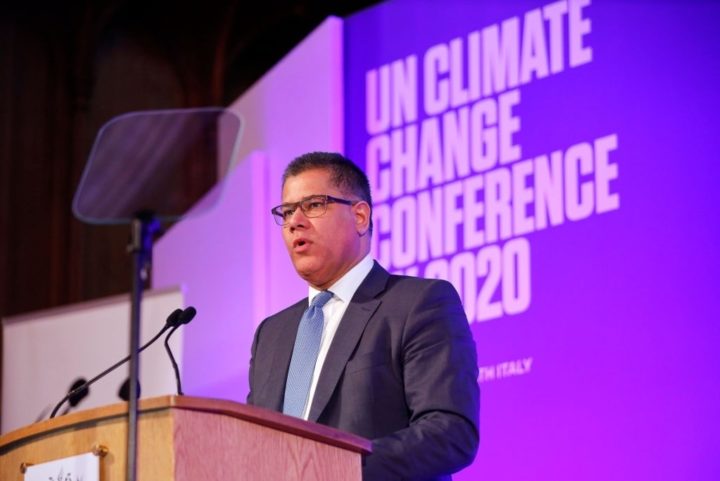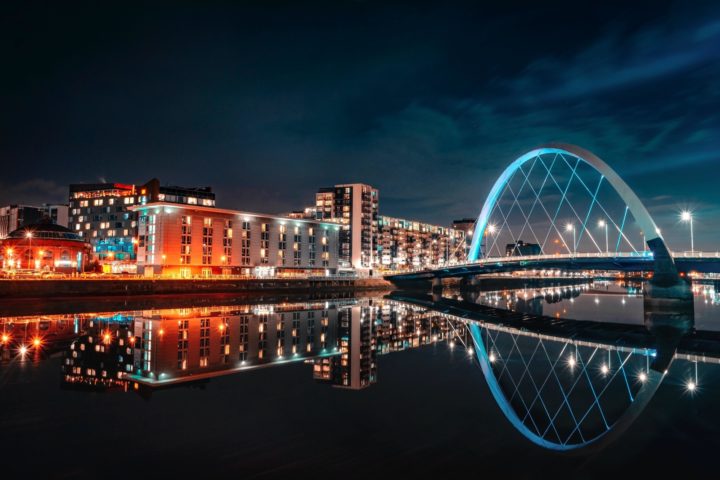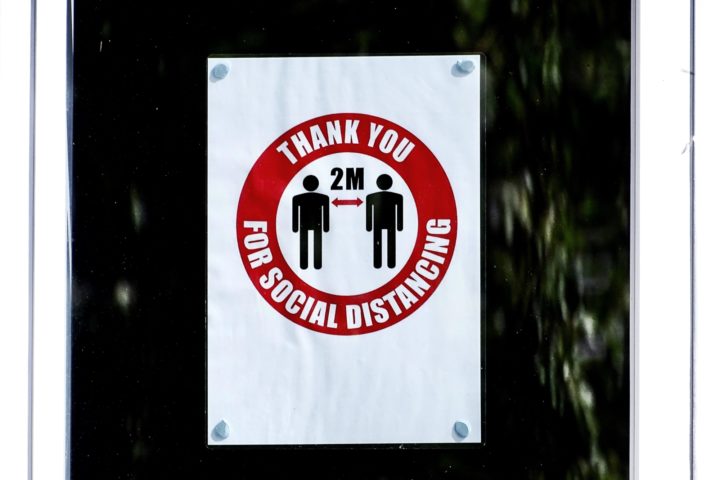COP26 & Covid preparations - what we know so far
With less than two months until the UN climate summit opens in Glasgow, we summarise what we know so far about UK Presidency preparations for an inclusive and covid-safe COP26.
By Tricia Curmi
Share
Last updated:
COP26 will not be a ‘normal’ COP; the covid pandemic has made sure of that. The arrangements which the UK Presidency and United Nations Framework Convention on Climate Change (UNFCCC) put into place to manage the summit will therefore be critical to ensuring fair, inclusive and equitable engagement of all parties, civil society observers, and media.
Below is a summary of what we know so far.

Vaccines
The UK made an offer of vaccination for all delegates – official, civil society observer or media – in June 2021, to be managed through the UNFCCC’s registration portal. Delegates needed to have registered by 23rd July.
The UK announced on 3rd September that it was on track to deliver vaccinations to all delegates who had requested one, with first doses being given from the middle of the following week, onwards, and second doses by mid-October.
They will deliver via ‘a combination of vaccines, including AstraZeneca, and Johnson and Johnson (single dose)’. On the basis of current public health advice (based on Public Health England guidance) as to the minimum timescales between doses, and allowing two weeks from the second dose to be considered fully covered, the UK Presidency has said this will mean all delegates who requested vaccinations are protected by the start of COP26 on 31st October.
The UK has said that ‘full vaccination is strongly encouraged’ and that it will recognise all covid-19 vaccines as proof of an individual’s vaccination status.
As of 9th September, 29% of the world’s population is fully vaccinated, although rates by continent range from 50% in Europe, to 3.3% in Africa. 64% of UK people are fully vaccinated.
Remaining questions
- It is not yet clear what may be required by way of a ‘vaccine passport’ in Scotland, and how the rules might differ from England, through which many delegates will travel. If acceptance of all vaccines by the UK is exceptional for COP26, this may be at odds with vaccine passport rules.
- Some have called for confirmation from the UK and Scottish Governments that healthcare support will be offered to delegates who contract the virus and become ill at COP26.
- Delegates with complex journeys and quarantine arrangements may well need to be able to travel earlier than a mid-October second dose would suggest. It remains to be seen how the Johnson and Johnson single-dose vaccine may help navigate these issues.

Travel to the UK
With the exception of heads of state, government ministers and members of certain international organisations, and with an assortment of other nuances and rules, visa nationals require a visa to attend COP (Home Office and Foreign Office (FCDO) visa guidance).
The UK has put COP-specific travel arrangements in place. These involve a reduced quarantine period of five days for fully vaccinated people travelling from red-list countries, although unvaccinated people from those countries will still need to quarantine for ten days.
On 7th September, the COP President announced that the UK Presidency will ‘fund the required quarantine hotel stays for registered delegates arriving from red-list areas’. This applies to party delegates, civil society observers, and media who would ‘otherwise find it difficult to attend COP, including all those from the Global South’.
At the start of October, the COP Presidency launched its 'managed quarantine service' (MQS) for delegates who qualify for costs to be covered by the hosts for their quarantine periods. Once you have registered for COP and confirmed your vaccine status to the UNFCCC, you can book an MQS package here.
For those travelling from green-list and amber-list countries, there is no requirement for self-isolation, whether vaccinated or not.
Everyone arriving will have to show evidence of a negative pre-arrival covid test.
Remaining questions
- There are complex travel logistics facing some parties – such as those from small-island Pacific states without commercial flight routes – including the need to quarantine for periods in countries through which they must transit, or of simply not being able to transit via certain countries. There may be calls for the UK and other parties to make special arrangements to smooth such problems, including laying on direct flights; the UK is reported already to be in discussion with Australia and New Zealand on quarantine rules.

Accommodation
The Presidency has appointed an external provider to manage accommodation bookings for delegates. This provider, MCI, has come in for criticism for very high prices for relatively modest accommodation, but it has only taken around a third of the available accommodation.
As is often the case with COPs, accommodation for an expected 25,000 participants has inevitably put a strain on what is available in, and within reasonable travelling distance of, Glasgow and has driven up prices.
The UK Presidency has made clear that it will cover accommodation costs for quarantine from red-list countries.
There is also a COP26 Homestay Network that is working to match visiting activists and campaigners with families in and around Glasgow.
Remaining questions
- There is likely to be further challenge on MCI costs, and on what support can be provided to access additional accommodation as required for quarantine purposes – as well as challenge to local authorities as to what more they can do to create cheaper hostel-style accommodation.
- It is usual for delegates to COPs to end up staying some considerable distance from the venue. For delegates staying in nearby towns & cities such as Edinburgh, the normal way to get to Glasgow would be by train. But with speculation of possible train strikes affecting the COP period, there will be questions of the Scottish Government and the Presidency as to what contingency arrangements might enable delegates till to attend and participate without disruption.

COVID restrictions at COP26
The UK Presidency has said that strict and regular covid testing will be in place at the COP venue to protect attendees, staff and the public. This will involve requiring delegates entering the blue zone to show a negative lateral flow device (LFD) test each day. A positive test will trigger a requirement to undertake a PCR test to confirm whether or not the delegate has covid. A positive test will require 10 days self-isolation.
COPs normally put in place a code of conduct to which attendees are expected to sign up – flouting of which can lead to de-badging of delegates (withdrawal of pass and ejection from COP). For COP26, this will include public health measures, which are likely to include social distancing, face-covering rules, and limits on numbers in meeting rooms.
The Presidency has said that a comprehensive set of ventilation and hygiene measures will be in place, and that additional covid-secure meeting and hospitality space will be provided for the use of COP blue zone attendees, beyond the main COP venue.
There is also expected to be an even more restricted, and therefore covid-safer, zone for world leaders and dignitaries such as the Pope, separated from the main blue zone.
Remaining questions
- Given some parties and observers may still not be able to attend, it is not yet clear the extent to which the COP venue and other spaces will incorporate provision for remote participation. This may also be necessary for attendees in Glasgow who test positive for exposure to covid and are required to self-isolate for a period.
- The effect of social distancing restrictions will be to limit numbers in negotiation rooms, at side events and press briefings, leading to the risk of exclusion even of those who manage to attend COP in person – most particularly, civil society observers.
This page was updated on 5th October, 2021, to include reference to the UK Presidency's managed quarantine service and further detail on the blue zone testing regime.
Share